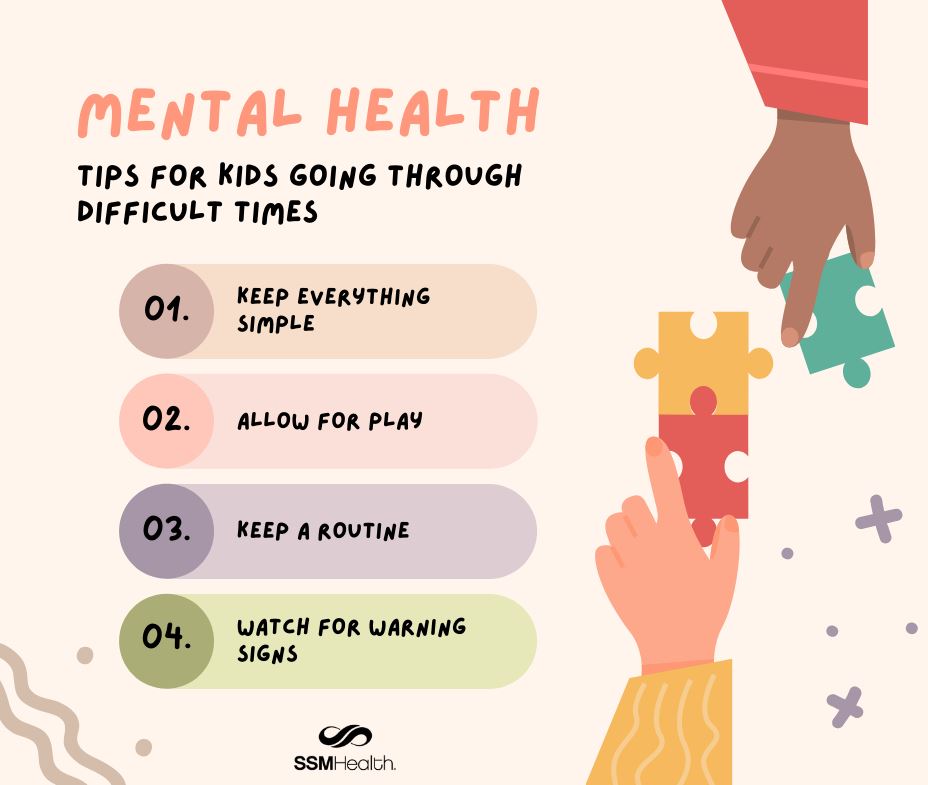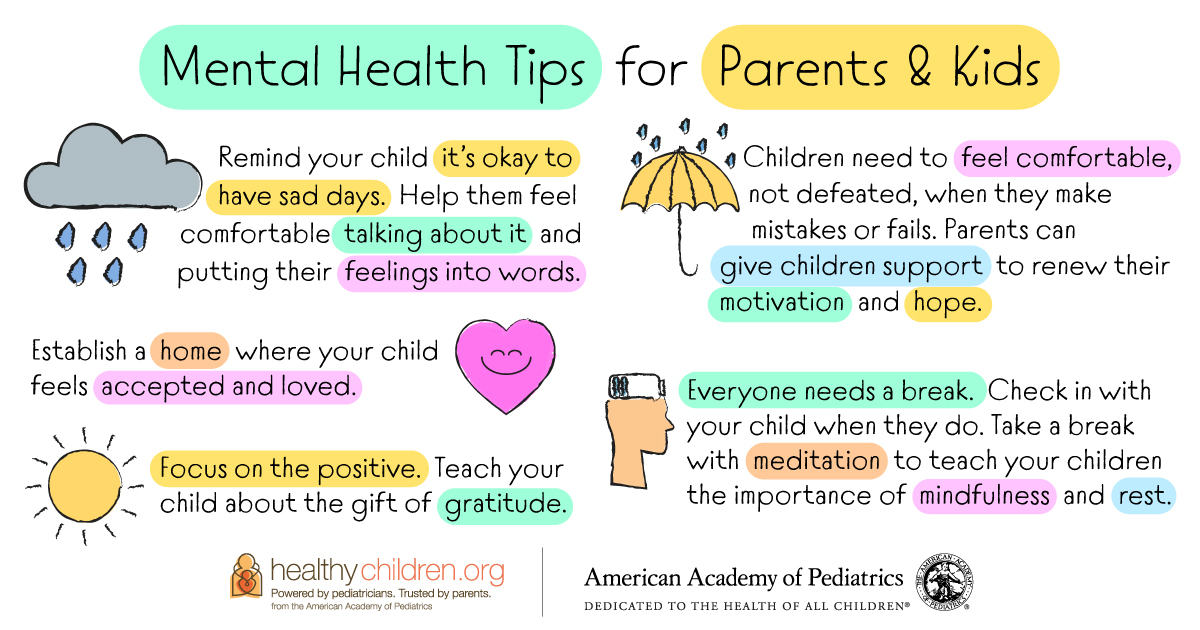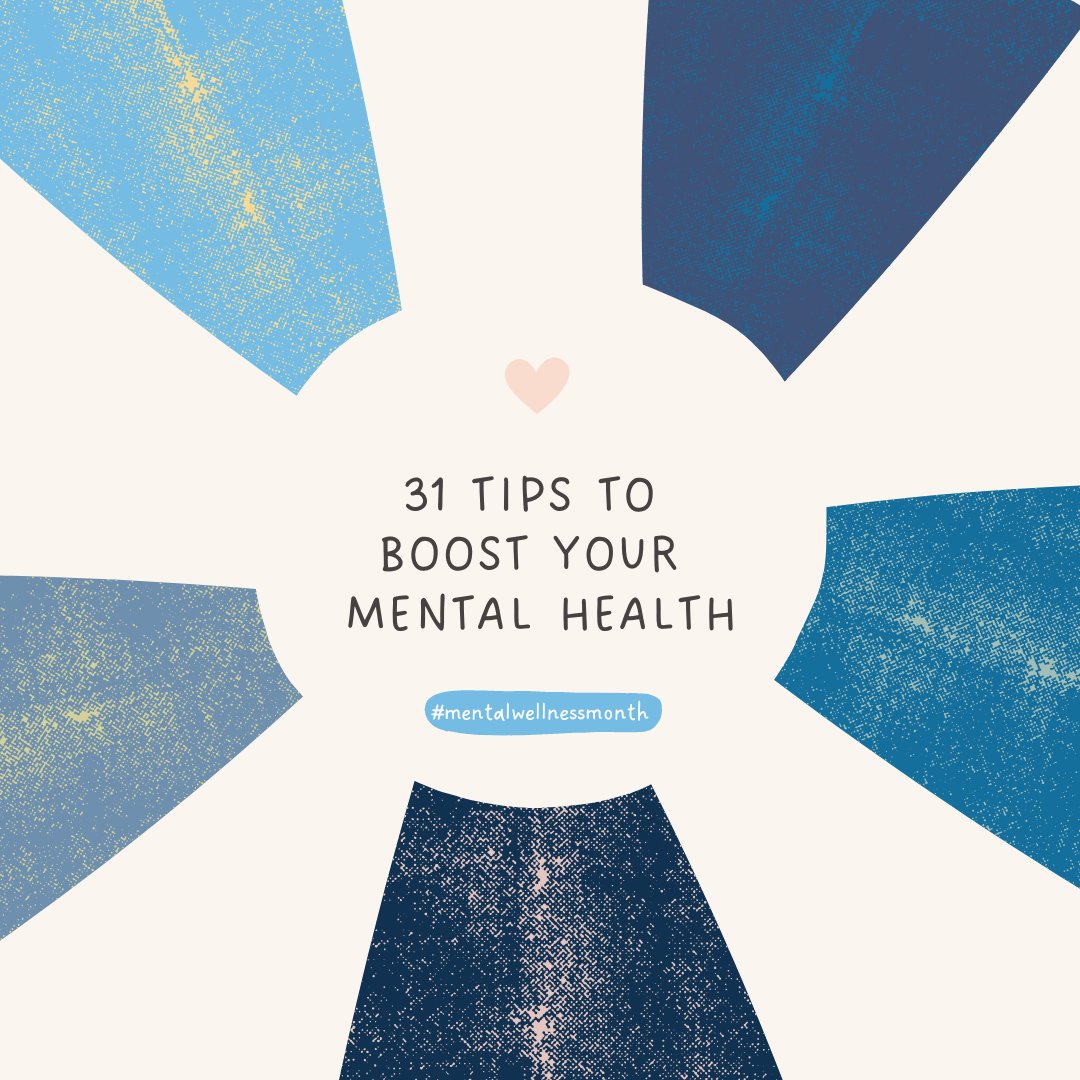Helping Kids Navigate Their Mental Health: Expert Tips for a Happier, Healthier Mind. Discover expert tips & guidance on helping kids navigate their mental health for a happier & healthier mind. Gain insights & advice from professionals in a conversational & easy-To-understand manner. Enhance your child’s well-being without overwhelming jargon or complex terms. Written naturally, just like a human would.
What is Helping Kids Navigate Their Mental Health: Expert Tips for a Happier, Healthier Mind & how does it work?
Helping Kids Navigate Their Mental Health: Expert Tips for a Happier, Healthier Mind is a concept that focuses on providing support & guidance To children To effectively manage their mental well-being. It aims To equip kids with The necessary tools & strategies To navigate The challenges & pressures they may face in their daily lives.
Children today experience a range of stressors, including academic pressure, social media influence, & personal struggles. This concept acknowledges The importance of addressing these issues in order To promote a happier & healthier mind.
The approach involves engaging mental health experts who specialize in working with children. These professionals help identify potential mental health issues, provide strategies for coping with stress & anxiety, & teach children how To develop positive mental well-being habits.
Brief history of Helping Kids Navigate Their Mental Health: Expert Tips for a Happier, Healthier Mind
The focus on children’s mental health has gained significant attention in recent years. With The increasing prevalence of mental health issues among children & adolescents, there has been a growing recognition of The need for early intervention & support.
Traditional approaches To mental health primarily focused on adults, with children’s mental health often overlooked. However, research highlighting The importance of addressing mental health in childhood has led To a shift in how we view & address these issues.
Mental health professionals began recognizing The unique challenges that children face & The impact it has on their overall well-being. This paved The way for The development of specialized programs & strategies aimed at promoting children’s mental health.
How To implement Helping Kids Navigate Their Mental Health: Expert Tips for a Happier, Healthier Mind effectively
Implementing Helping Kids Navigate Their Mental Health: Expert Tips for a Happier, Healthier Mind requires a collaborative effort from parents, educators, & mental health professionals. Here are some effective strategies for implementation:
1. Education & Awareness: Raise awareness about The importance of children’s mental health through workshops, seminars, & educational campaigns. Provide parents & educators with resources To better understand & support children’s mental well-being.
2. Early Intervention: Identify signs of potential mental health issues in children early on. Ensure access To mental health professionals who specialize in working with children & provide early intervention strategies.
3. Teach Coping Mechanisms: Equip children with skills To cope with stress, anxiety, & difficult emotions. Teach relaxation techniques, problem-solving strategies, & healthy coping mechanisms.
4. Foster Supportive Environments: Create safe & supportive environments at home, in schools, & in The community. Encourage open communication, empathy, & understanding among children & adults.
5. Collaboration & Partnership: Foster collaboration between parents, educators, & mental health professionals To ensure a holistic approach To children’s mental health. Regularly communicate & exchange information To provide consistent support.
Key benefits of using Helping Kids Navigate Their Mental Health: Expert Tips for a Happier, Healthier Mind
1. Improved Mental Well-being: The primary benefit of this concept is improved mental well-being for children. By equipping them with skills & strategies To manage their emotions & navigate challenges, they are better prepared To handle stress & experience greater overall happiness.
2. Academic Success: Children with good mental health are more likely To excel academically. When their mental well-being is prioritized, they are better able To concentrate, retain information, & perform at their full potential.
3. Healthy Relationships: Helping kids navigate their mental health fosters healthy relationships with peers, family members, & authority figures. By teaching empathy, communication, & problem-solving skills, children can build positive & supportive relationships.
4. Prevention of Long-Term Mental health issues: Early intervention & support can prevent The development of more severe mental health issues later in life. By addressing concerns at a young age, children have a better chance of leading mentally healthy lives as adults.
Challenges with Helping Kids Navigate Their Mental Health: Expert Tips for a Happier, Healthier Mind & potential solutions
Implementing Helping Kids Navigate Their Mental Health: Expert Tips for a Happier, Healthier Mind comes with its challenges. Some key challenges include:
1. Stigma & Misconceptions: Mental health still carries a stigma in many societies, making it difficult for children & parents To seek help. Education & awareness campaigns can help break down these barriers.
2. Limited Resources: Access To mental health professionals & resources may be scarce, especially in underserved communities. Governments & organizations can invest in providing greater access To mental health services for children.
3. Parental Involvement: Parents may not always be aware of The importance of their role in supporting their child’s mental health. Educating parents & involving them in The process can help overcome this challenge.
4. Integration in Education System: Incorporating mental health education & support within The education system may require policy changes & training for educators. Advocacy for mental health programs in schools can help address this challenge.
Future of Helping Kids Navigate Their Mental Health: Expert Tips for a Happier, Healthier Mind
The future of Helping Kids Navigate Their Mental Health: Expert Tips for a Happier, Healthier Mind looks promising. As awareness & understanding of children’s mental health continue To grow, there is increasing emphasis on early intervention & prevention.
Advancements in technology offer new avenues for providing accessible mental health support To children. Online resources, teletherapy, & virtual support groups are becoming more prevalent, making mental health services more widely available.
Furthermore, there is a push for integrating mental health education into school curriculums & establishing comprehensive support systems within educational institutions. This will ensure that mental health is prioritized & addressed on a broader scale.
In conclusion, Helping Kids Navigate Their Mental Health: Expert Tips for a Happier, Healthier Mind aims To provide children with The tools they need To maintain good mental well-being. By implementing strategies early on, involving parents, educators, & mental health professionals, & addressing key challenges, we can create a future where children have The support they need for a healthier, happier life.

Helping Kids Navigate Their Mental Health: Expert Tips for a Happier, Healthier Mind
The Importance of Mental Health in Children
Ensuring The mental well-being of children is crucial for their overall development & happiness. Just like physical health, mental health plays a vital role in shaping a child’s behavior, emotions, & ability To cope with day-To-day challenges. As parents & caregivers, it is our responsibility To provide The necessary support & guidance To help kids navigate their mental health. With The right strategies & expert tips, we can empower our children To cultivate a happier & healthier mind.
Identifying Signs of Mental Health Issues
Recognizing signs of mental health issues in children can be challenging, as they may not always express their emotions openly. However, there are certain red flags that parents & caregivers should be aware of. These may include changes in behavior, persistent sadness or irritability, difficulty concentrating, sleep disturbances, or withdrawal from social activities. If you notice any of these signs, it’s important To seek professional help & support for your child.
Creating a Supportive Environment
To promote positive mental health in children, it is essential To create a supportive & nurturing environment at home & in school. By establishing strong & open lines of communication, you can encourage your child To express their feelings & concerns without judgment. Actively listening To your child & validating their emotions can make a significant difference in their overall well-being. Additionally, promoting healthy eating habits, regular physical activity, & adequate sleep are also important factors that contribute To a child’s mental health.
Teaching Coping Strategies
Equipping children with effective coping strategies can help them manage stress & build resilience. Encourage your child To engage in activities they enjoy, such as hobbies, sports, or creative outlets. Teaching relaxation techniques, such as deep breathing exercises or mindfulness, can also help them regulate their emotions. It’s essential To emphasize The importance of self-care & teach them healthy ways To cope with challenges & setbacks.
Seeking Professional Help
While parents & caregivers play a crucial role in supporting children’s mental health, sometimes professional intervention is necessary. If you suspect that your child is experiencing significant mental health issues, don’t hesitate To seek help from a qualified mental health professional. They can provide a thorough evaluation, diagnose any underlying conditions, & recommend appropriate treatment options. Remember, seeking professional help is a sign of strength & prioritizing your child’s well-being.
For more comprehensive information on helping kids navigate their mental health, you can refer To this guide provided by Health Park Pediatrics.
Helping Kids Navigate Their Mental Health: Expert Tips for a Happier, Healthier Mind – Features:
- Regular communication & open dialogue
- Promoting healthy eating habits
- Encouraging physical activity
- Developing relaxation techniques
- Building resilience through coping strategies
Supporting Mental Health in Schools
In addition To The efforts made at home, schools play a crucial role in supporting children’s mental health. It is important for educational institutions To prioritize mental health education, awareness, & provide access To counseling services. By incorporating mental health into The curriculum & fostering a safe & inclusive environment, schools can contribute significantly To The overall well-being of their students.
You can find valuable resources on mental health in schools from The Montgomery County Public Schools.

Introduction
Helping Kids Navigate Their Mental Health: Expert Tips for a Happier, Healthier Mind
The Importance of Good Mental Health in Children
Good mental health is crucial for children To live happy & fulfilling lives. It impacts their overall well-being, emotional development, & ability To cope with life’s challenges. According To The Mental Health America (MHA), addressing children’s mental health is essential as it sets The foundation for their future success. Children with positive mental health are more likely To excel academically, have healthy relationships, & become productive adults.
Ensuring good mental health in children requires a multi-faceted approach that involves parents, educators, & healthcare professionals. By understanding The critical aspects of mental health, parents & caregivers can provide The necessary support & guidance To help children navigate their emotional well-being.
Check this link To understand more about what every child needs for good mental health.
Recognizing The Signs of Mental Health Issues in Children
Recognizing The signs of mental health issues in children is crucial for early intervention & support. As parents & caregivers, it is essential To be vigilant & observant of any changes in their behavior, emotions, or physical well-being. Some common signs that indicate potential mental health issues in children include:
- Changes in sleeping or eating patterns
- Extreme mood swings or emotional outbursts
- Withdrawal from activities or social interactions
- Difficulties in concentrating or performing academically
- Loss of interest in activities they once enjoyed
If you notice any of these signs persisting or interfering with your child’s daily life, it is important To seek professional help from a qualified mental health provider.
Building Resilience & Coping Strategies
Building resilience is a vital aspect of helping children navigate their mental health. Resilience enables children To bounce back from adversity, setbacks, or stressful situations. Here are some strategies & techniques that can foster resilience in children:
1. Encourage open communication: Create a safe & supportive environment where your child feels comfortable expressing their emotions & concerns.
2. Teach problem-solving skills: Help children develop problem-solving abilities, teaching them how To identify solutions & make informed decisions.
3. Foster positive relationships: Encourage your child To build healthy relationships & develop a support system of friends, family, & trusted adults.
Balancing Technology & Screen Time
In today’s digital age, children are exposed To technology & screens from a very early age. While technology offers numerous benefits, excessive screen time can have negative impacts on children’s mental health. It is crucial To find a balance & set healthy boundaries regarding technology use.
Here are some tips To help parents manage their child’s screen time:
1. Set limits: Establish specific rules on how much time your child can spend on screens each day, ensuring they have ample time for other activities.
2. Encourage offline activities: Encourage your child To engage in offline activities like outdoor play, hobbies, or spending quality time with family & friends.
3. Monitor content: Be aware of The content your child is consuming, ensuring it is age-appropriate & promotes positive values.
Seeking Professional Help
While parents play a crucial role in supporting their child’s mental health, there may be instances where professional help is necessary. It is essential To recognize when your child may benefit from The expertise of a mental health professional.
This link provides valuable information on building mental wellness in children & teenagers.
Comparison: Traditional Approaches vs. Holistic Approaches
| Traditional Approaches | Holistic Approaches |
|---|---|
| Focuses solely on symptom management | Takes into account The whole person – mind, body, & spirit |
| Relies heavily on medication | Uses a combination of therapies, including counseling, mindfulness, & alternative practices |
| Addresses immediate concerns | Long-term approach that addresses underlying causes & promotes overall well-being |
The Role of Schools & Educators
Schools & educators play a significant role in supporting children’s mental health. By creating a positive & inclusive learning environment, schools can contribute To The overall well-being of their students. Some ways schools can promote mental health include:
1. Implementing social-emotional learning programs: Integrate social-emotional learning programs into The curriculum To teach students important skills like self-awareness, empathy, & emotional regulation.
2. Providing access To counseling services: Ensure that students have access To trained counselors who can provide guidance & support for their mental health needs.
3. Encouraging healthy coping mechanisms: Educate students about healthy ways To cope with stress & anxiety, such as practicing mindfulness or engaging in physical activity.
Self-Care for Parents & Caregivers
While focusing on The mental health of children, it is essential for parents & caregivers To prioritize self-care. Taking care of your own mental well-being allows you To better support your child. Here are some self-care practices for parents & caregivers:
1. Practice self-compassion: Be kind To yourself & recognize that you are doing your best.
2. Seek support: Connect with other parents or seek professional help if needed.
3. Set boundaries: Establish boundaries To ensure you have time for self-care activities.
Helping Kids Navigate Their Mental Health
Helping kids navigate their mental health is a crucial responsibility for parents, educators, & society as a whole. By prioritizing their emotional well-being, fostering resilience, & seeking professional help when needed, we can ensure that children have happier & healthier minds. Remember, mental health matters, & early intervention can make a significant difference in a child’s life.
My personal experience with helping my child navigate their mental health has taught me The importance of patience, open communication, & seeking professional guidance when necessary. It has been a journey of learning & growth, & I am grateful To see The positive impact it has had on my child’s well-being.
Visit Nurpost for more valuable information about children’s mental health.
Why is mental health important for kids?
Having good mental health is crucial for kids as it helps them develop resilience, cope with stress, build positive relationships, & perform well academically.
How can parents promote mental health in kids?
Parents can promote mental health in kids by creating a supportive & loving environment, encouraging open communication, teaching problem-solving skills, & providing opportunities for physical activity & relaxation.
What are some signs of poor mental health in kids?
Signs of poor mental health in kids can include frequent mood swings, changes in appetite or sleep patterns, decreased interest in activities, difficulty concentrating, withdrawal from friends & family, & sudden decline in academic performance.
How can parents help if their child is experiencing mental health issues?
If a child is experiencing mental health issues, parents can provide a listening ear, offer empathy & support, seek professional help if needed, encourage healthy lifestyle habits, & help their child develop coping mechanisms.
Are there any activities that can boost mental health in kids?
Absolutely! Engaging in physical activities, practicing mindfulness & relaxation techniques, participating in creative hobbies, & spending quality time with loved ones can all contribute To better mental health in kids.
Conclusion
In conclusion, when it comes To helping kids navigate their mental health, there are some expert tips that can lead To a happier & healthier mind. It is important To approach these discussions with a conversational tone & use simple language that avoids jargon & complex terms. By doing so, we can ensure that children understand & feel comfortable discussing their mental health. It is vital To create a safe & supportive environment where kids can express their emotions & concerns freely. Additionally, teaching them coping strategies, encouraging physical activity, & fostering positive relationships can greatly contribute To their overall well-being. Remember, small steps can lead To significant improvements in a child’s mental health & emotional well-being.
